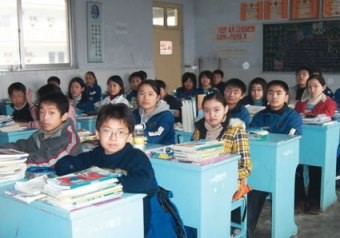To widen horizons and broaden opportunities, Tibetan parents encourage their children to take up Putonghua or standard Chinese classes.
Such is the case with 47-year-old Dekyi Drolkar, a mother of two.
"Instead of being worried about their competence in their mother tongue, I care more whether my girls will be alienated from society if they can only speak Tibetan," Dekyi said in an interview with the Global Times. Her 15-year-old daughter Yangzom acted as her interpreter.
According to Cai Shoukan, Party chief of Shannan Prefecture's education bureau, most primary schools in rural Tibet do not offer a lot of classes in Chinese. The situation is reverse in Tibetan cities and townships, where Putonghua is widely spoken and the Tibetan language seldom used. Secondary schools, on the other hand, teach most of their classes in Chinese.
Even instructors are encouraging students to get familiar with Putonghua as well.
Based on numbers released by the regional education department, majority or over 96 percent of students in Tibet have received bilingual education in 2014.
In a report by the Xinhua News Agency, a total of 1,217 primary schools, 93 junior high schools, and 29 senior high schools in Tibet now provide bilingual education.
However, some people are worried that focusing on Putonghua will lead to the students' illiteracy when it comes to the Tibetan language.
Others argue that it is all a matter of finding the balance between Putonghua and their native tongue.
When asked whether she is worried her daughters will forget their mother tongue, Dekyi replied, "I have never been worried that they will lose their mother tongue, as they are still immersed in a Tibetan-speaking environment back home."



























